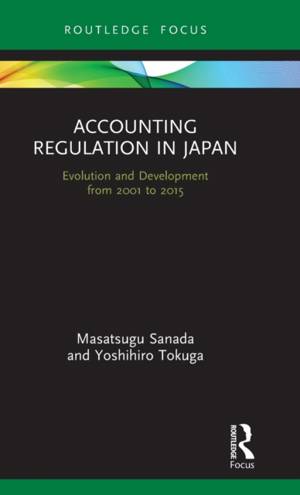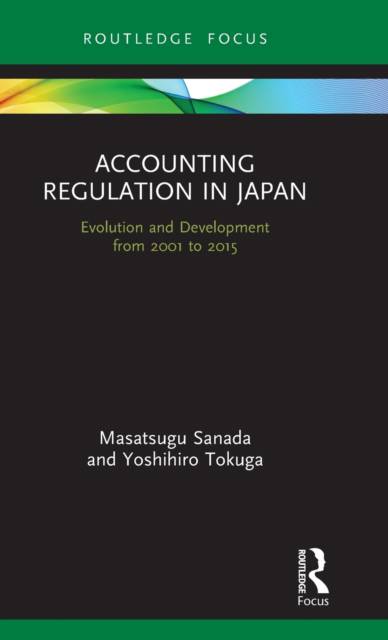
- Afhalen na 1 uur in een winkel met voorraad
- Gratis thuislevering in België vanaf € 30
- Ruim aanbod met 7 miljoen producten
- Afhalen na 1 uur in een winkel met voorraad
- Gratis thuislevering in België vanaf € 30
- Ruim aanbod met 7 miljoen producten
Accounting Regulation in Japan
Evolution and Development from 2001 to 2015
Masatsugu Sanada, Yoshihiro TokugaOmschrijving
Little has been published on accounting standards in Japan and how they have developed. The purpose of this study is to construct a historical narrative of the interplay between accounting standards in Japan and theories of regulation.
The authors demonstrate that delegation of the authority for accounting standard setting to the private sector in Japan is incomplete, and thus, the role of the public sector remains important. In the discussion about IFRS implementation in Japan, the movement in the United States, industry opinions, and ideological conflict between fair value versus historical cost play important roles. These elements combined led to the ambiguous coexistence of four sets of accounting standards in Japan. First, by using an explaining-outcome process-tracing method, the authors examine how these sets of standards occurred and explore the significance of each. Second, they deliver an explanation of this unique coexistence through the lens of theories of regulation. In doing so, they provide an overview of the history of the recent development of accounting regulation in Japan and offer an up-to-date response to current affairs or policy debates in Japan that have been rapidly changing.
Providing a rare insight into accounting regulation in Japan, an IFRS non-application country, this concise text will be of great interest to researchers and advanced students in international accounting and accounting regulation.
Specificaties
Betrokkenen
- Auteur(s):
- Uitgeverij:
Inhoud
- Aantal bladzijden:
- 96
- Taal:
- Engels
- Reeks:
Eigenschappen
- Productcode (EAN):
- 9780367221072
- Verschijningsdatum:
- 24/09/2019
- Uitvoering:
- Hardcover
- Formaat:
- Genaaid
- Afmetingen:
- 140 mm x 218 mm
- Gewicht:
- 272 g

Alleen bij Standaard Boekhandel
Beoordelingen
We publiceren alleen reviews die voldoen aan de voorwaarden voor reviews. Bekijk onze voorwaarden voor reviews.











